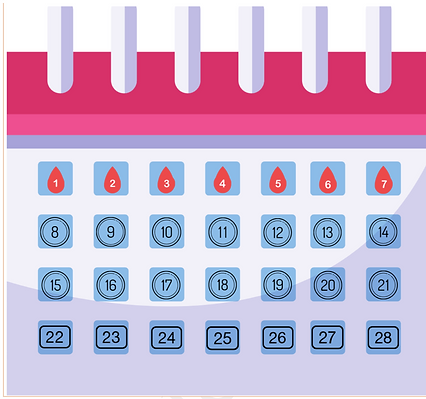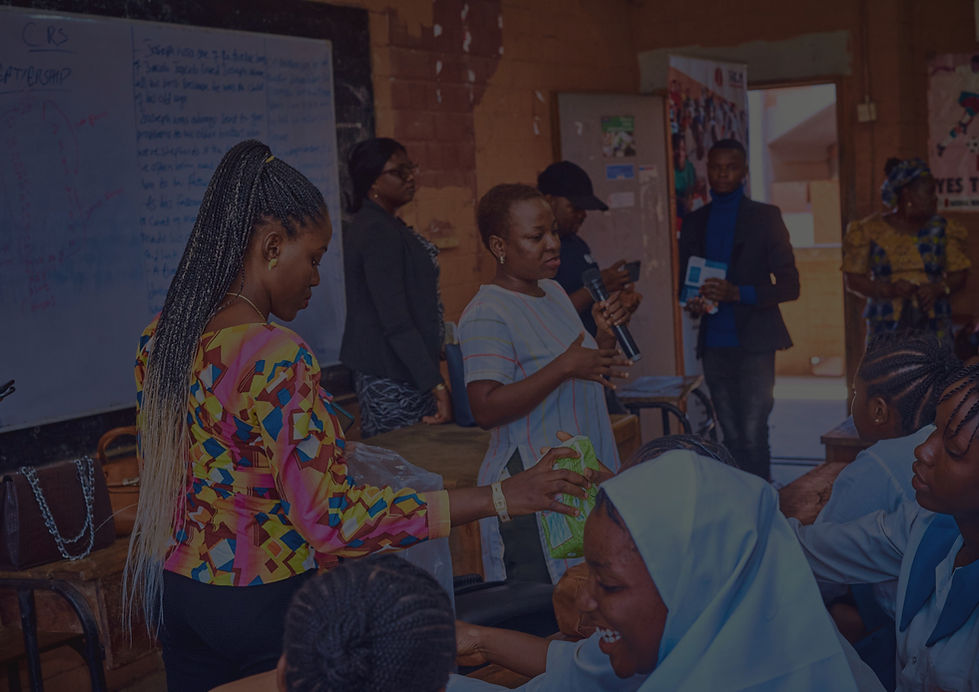What is Menstruation?
Menstruation is also known as a period and is experienced by genetic females. Periods or menstruation means blood will come out from your vagina, which is between your legs. The blood from your period will not hurt you; it will be reddish brown and might be a bit lumpy. There will be more blood in the first few days of your period.
Most women and girls from about 10 years old to 50 years old have periods. This is normal and a sign that you are healthy and growing.
What is Premenstrual Syndrome?
PMS (premenstrual syndrome) is the name for the symptoms women can experience in the weeks before their period.
Many girls get PMS; symptoms include:
- Feeling bloated
- Tummy pain
- Headaches/backache
- Nausea
- Tiredness
- Breast pain
- Weight gain
- Mood swings
Different girls and women experience different symptoms with different severity.
What can help?
There is no cure for PMS, but you can treat individual symptoms.
- Buying menstrual hygeine products
You can buy menstrual hygiene products (e.g menstrual pad, menstrual cups or tampons) at chemists or supermarkets.
Don’t be embarrassed! EVERY girl and woman needs to buy sanitary towels and tampons.
- How do you use a menstrual pad?
Menstrual pads are the most common type of menstrual hygiene products, and they come in different sizes. They go in your pants and collect the blood from your period to keep your pants clean.
- Take the menstrual pad out of the packet, and peel off the sticky strip in the middle.
- The sticky part will now keep it in place. Now you can get on with things and not worry about your period.
- Remember to change the pad every 6-8 hours during the day.
- Be prepared
It’s a good idea to carry some menstrual hygiene pads when you are expecting your period.
If your period starts and you don’t have a pad or tampon, use tissues or rolled-up soft toilet paper, or ask a friend if they’ve got one.
REMEMBER to change to a menstrual pad or tampon as soon as possible.
- Calculating your Menstrual Cycle

Figure 1: Calculating your menstrual cycle
The menstrual cycle starts from the first day of your period until the day before your next period starts. The period flow can last 2 – 7 days.
The length of a normal menstrual cycle can vary; by 24 to 35 days. The average/common length of the menstrual cycle is 28 days.
In a 28-day Cycle, Ovulation occurs between the 9th to the 19th day of the cycle (the most fertile days), but on average, it will occur on the 14th day of the cycle.
- Living with your period.
- The blood will flow for 2-7 days once a month.
- You need to keep your clothes clean and yourself comfortable.
- You need to stop your pants from getting blood on them.
- You need to use a sanitary pad.
- How often do you change your menstrual pad or tampon?
Changing your menstrual pad or tampon every 6-8 hours when your period is heavy is essential. Please don’t leave a pad or tampon on for more than 8 hours; it will smell and may cause skin irritation or infections.
- What to do with your used towel or tampon.
Wrap it up in toilet paper.
Put it in a bin, NOT down the toilet.
Then wash your hands.
- Do you have pain with your periods?
You might get pain in your stomach or back when you have your period.
Things to help the pain.
- You can go for a walk.
- Exercise
- Take a warm shower.
- Put a hot water bottle on your stomach.
- Take paracetamol.
- If it’s severe, tell someone.
You may feel sad, then happy, or be bad-tempered, which is normal due to the changes in your body when you have a period. Don’t worry, You will be back to normal in a few days.
You can still do things while you have a period; You can still get some exercise while you are having your period. You can go for walks, or go out with your friends. You can go swimming if you’re using a tampon, NOT if you’re using a sanitary towel. You can still have baths and showers and wash your hair. Doing these things will probably help you feel better too!
- Who to ask for help?
You might be worried about your period or have other questions about it.
Talk to your community nurse, guardian, mother, teacher, or friends. They offer some help.
Written and reviewed by
Dr Elizabeth Ejagwulu (MBBS, GMC-GPST1)
Dr MaryJane Nweje (MBBS, MSc)
Source:
- https://www.womenshealth.gov/menstrual-cycle/your-menstrual-cycle

